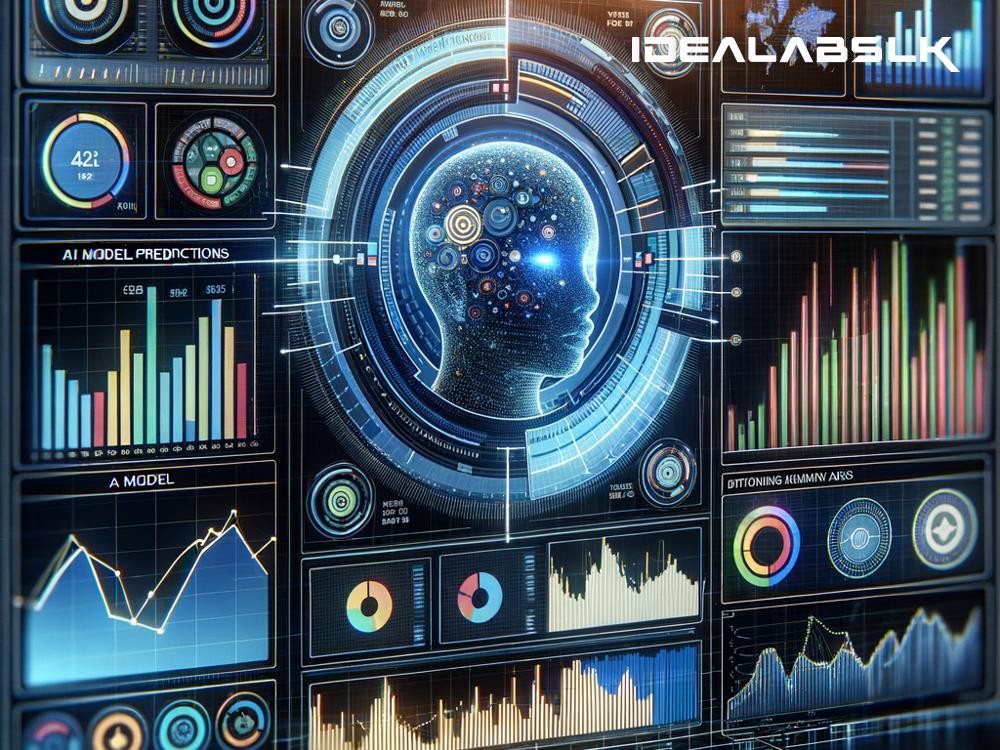AI in Trading: Making Smarter Investments with Predictive Algorithms
In the bustling world of stock trading, emotions often run high. The fear of losing money or the exhilaration of making a profit can cloud our judgment, leading to impulsive decisions that might not always be in our best interest. However, the emergence of Artificial Intelligence (AI) in the trading scene is changing the game by helping traders make more informed, emotion-free decisions. Let's dive into how predictive algorithms are redefining the way we trade and how they're making the market more accessible and less daunting for everyone.
What is AI in Trading?
When we talk about AI in trading, we're referring to the use of machine learning algorithms and sophisticated models to predict market trends and make trading decisions. These algorithms analyze vast amounts of market data — including price movements, trading volumes, and global economic indicators — to identify patterns that are invisible to the human eye. Armed with these insights, traders can make more reasoned and calculated decisions, sidelining the impulsive reactions triggered by human emotions.
The Power of Predictive Algorithms
Predictive algorithms are at the heart of AI trading systems. These algorithms are designed to forecast future market movements based on historical data. For instance, if a predictive algorithm identifies a pattern that usually precedes a stock price increase, it can automatically execute buy orders to capitalize on the impending price rise. Conversely, if it detects a pattern indicating a potential price decline, it can sell off the stocks before the dip. This predictive capability allows traders to stay one step ahead, making profits while mitigating risks.
Reducing the Impact of Human Emotion
Human emotion can be a trader's worst enemy. Fear, greed, and hope can lead to overtrading, holding onto losing positions for too long, or selling winners too early. AI, with its emotionless analysis, eradicates these impulsive tendencies. Since AI-driven trading systems rely solely on data and pre-set algorithms, they stick to the strategy without being swayed by the emotional rollercoaster of trading. This means decisions are made purely on the likelihood of profit, not on gut feelings or hunches.
Making Trading More Accessible
One of the most exciting aspects of AI in trading is its potential to level the playing field. Traditionally, trading has been seen as the domain of financial experts and seasoned investors. However, AI trading platforms are increasingly user-friendly, offering simple interfaces that summarize complex data into actionable insights. This democratizes trading, making it more accessible to novices and professionals alike. Whether you're a hobbyist looking to dabble in the stock market or a veteran trader, AI tools can enhance your trading strategy.
The Future of AI in Trading
As technology continues to advance, the future of AI in trading looks promising. We're likely to see even more sophisticated predictive algorithms that can adapt to changing market conditions in real time. Moreover, the integration of AI with other technologies like blockchain could further revolutionize trading, making it more secure, transparent, and efficient.
Embracing AI with Caution
While the benefits of AI in trading are clear, it's important to approach it with caution. No predictive algorithm is foolproof, and market conditions can change unpredictably. It's crucial to use AI tools as part of a broader trading strategy, combining them with traditional market analysis and your own judgment.
Moreover, with the increasing reliance on AI systems, there's a growing need for regulation to prevent market manipulation and protect investors. As such, both traders and regulators need to stay informed about the capabilities and limitations of AI in trading.
Conclusion
AI in trading, particularly through predictive algorithms, is transforming the way we invest. By reducing the impact of human emotion on trading decisions, AI allows for more rational, informed investments. While AI in trading is not without its challenges, its potential to make trading more accessible and profitable is undeniable. As we look to the future, it's clear that the integration of AI in the financial markets is not just a trend but a fundamental shift in how we approach investing. Whether you're an experienced trader or a newcomer to the market, embracing AI could be the key to unlocking more successful, stress-free investments.

